Easter morning egg hunts, new clothes, and the childhood wonder of it all. The sun is shinning and there is a gentle breeze, no rain in sight, perhaps it is finally Spring. Snow and egg hunts don't really go well together, disappointing for all , is my feeling. but today is a perfect kite flying day, another Easter tradition in my family.
Not sure it is a good idea to decorate ones lawn with marshmallow bunnies but it is a beautiful image!
I know very little about where Easter traditions came from, but I should have guessed it was Germany.
Happy easter, from my house to yours!
10 wonderful German Easter traditions and their meanings
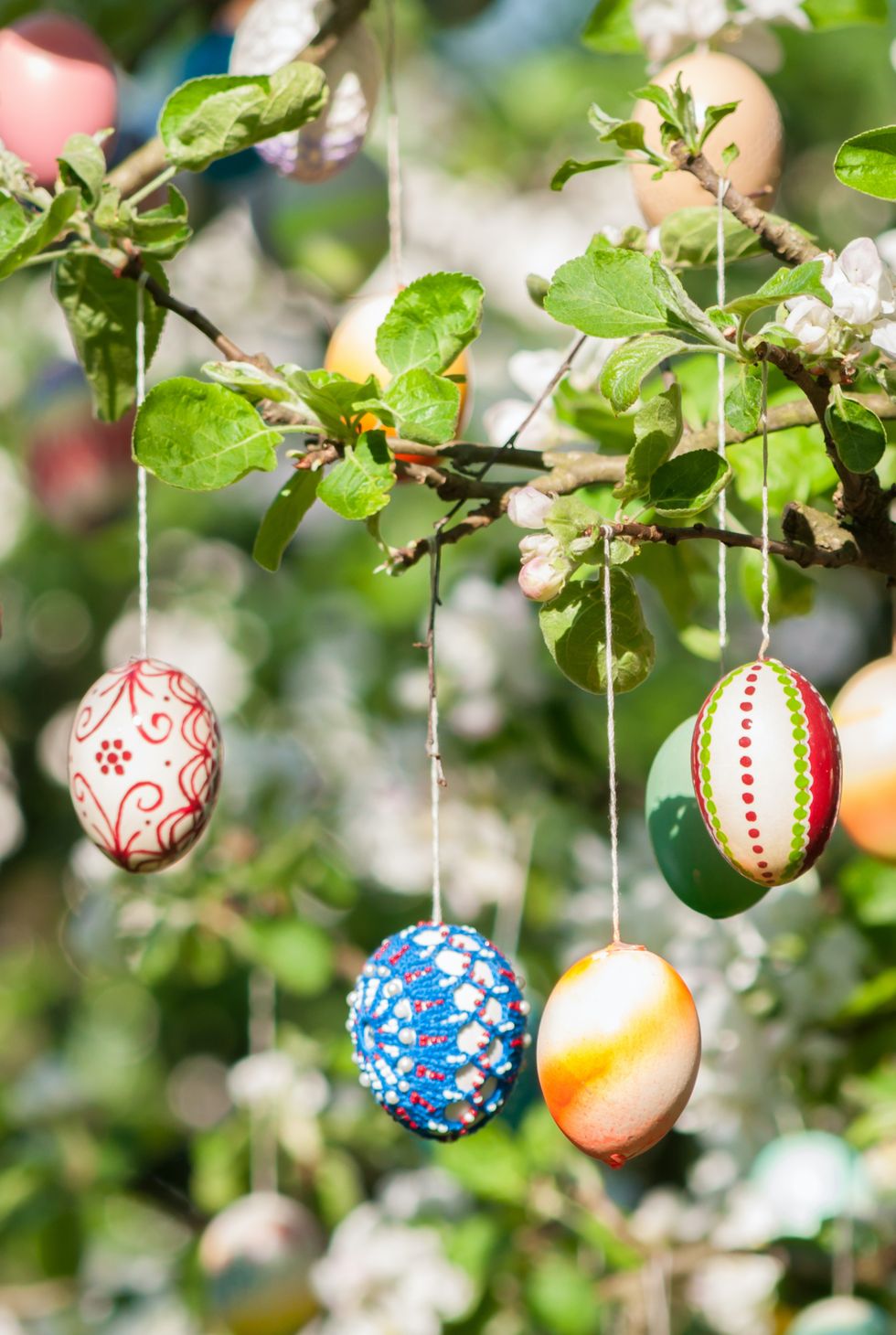 Kerrick//Getty Images
Kerrick//Getty Images1Bunte Eier (painted eggs)
Eggs
have long represented springtime. While Eastern Orthodox Christians
were among the first to paint eggs, the Germans started hanging them on
trees.
Known as Bunte Eier or Osterei,
many German families will colour boiled eggs to be used in Easter egg
hunts or to give away. Some people also 'blow out' raw eggs in the lead
up to Easter before painting and hanging them from branches around the
home and garden.
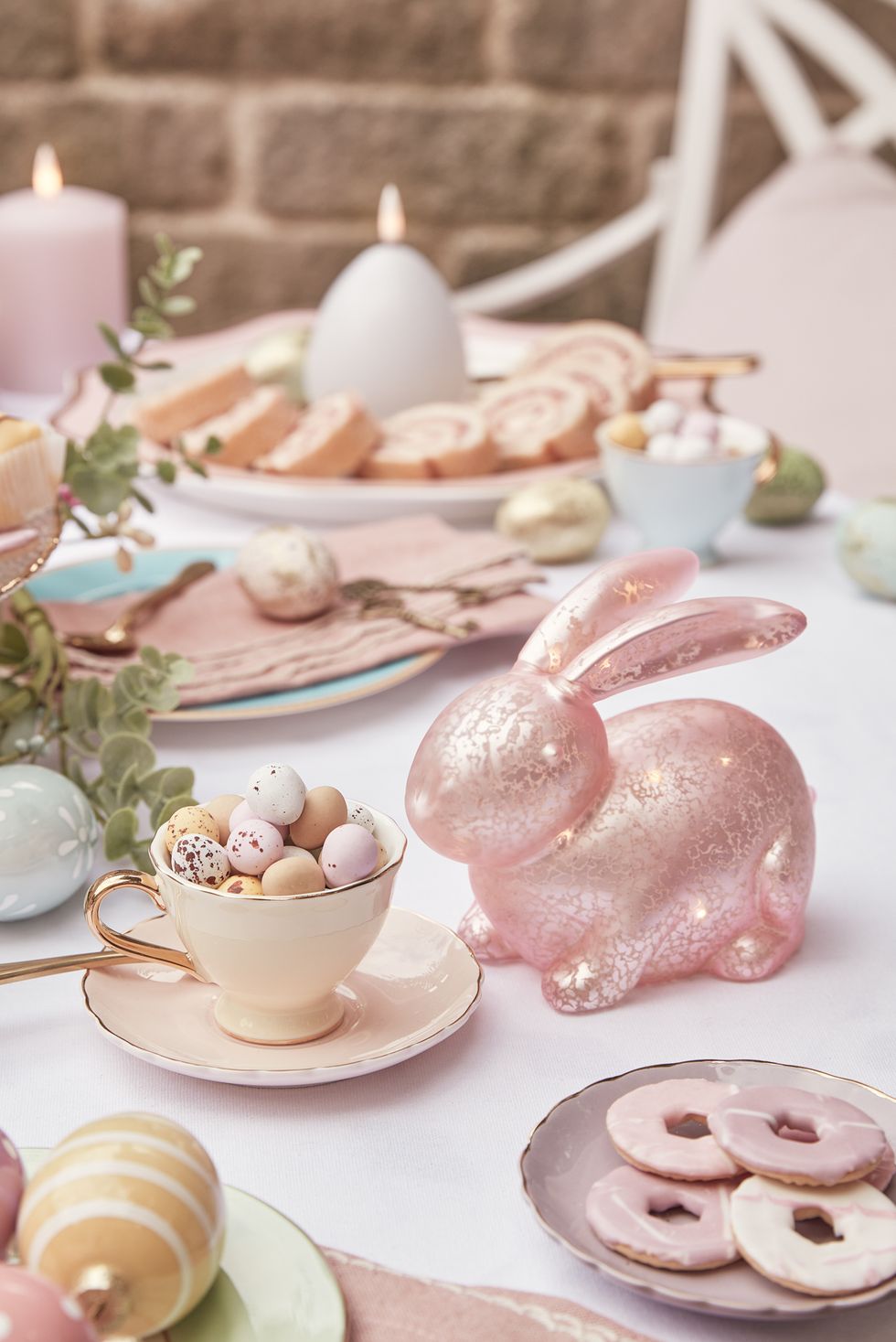 Oliver Perrott/Lights4Fun
Oliver Perrott/Lights4Fun2Easter bunny (Osterhase)
One
of the most prominent symbols of Easter, the origins of the Easter
bunny stem from the Germanic and Saxon goddess of dawn and spring,
Eostre. Germans introduced the tradition of the Easter bunny to America,
with children making nests for the Osterhase.
Pictured: Pink Mottled Glass Bunny Easter Decorations, Lights4fun
Advertisement - Continue Reading Below
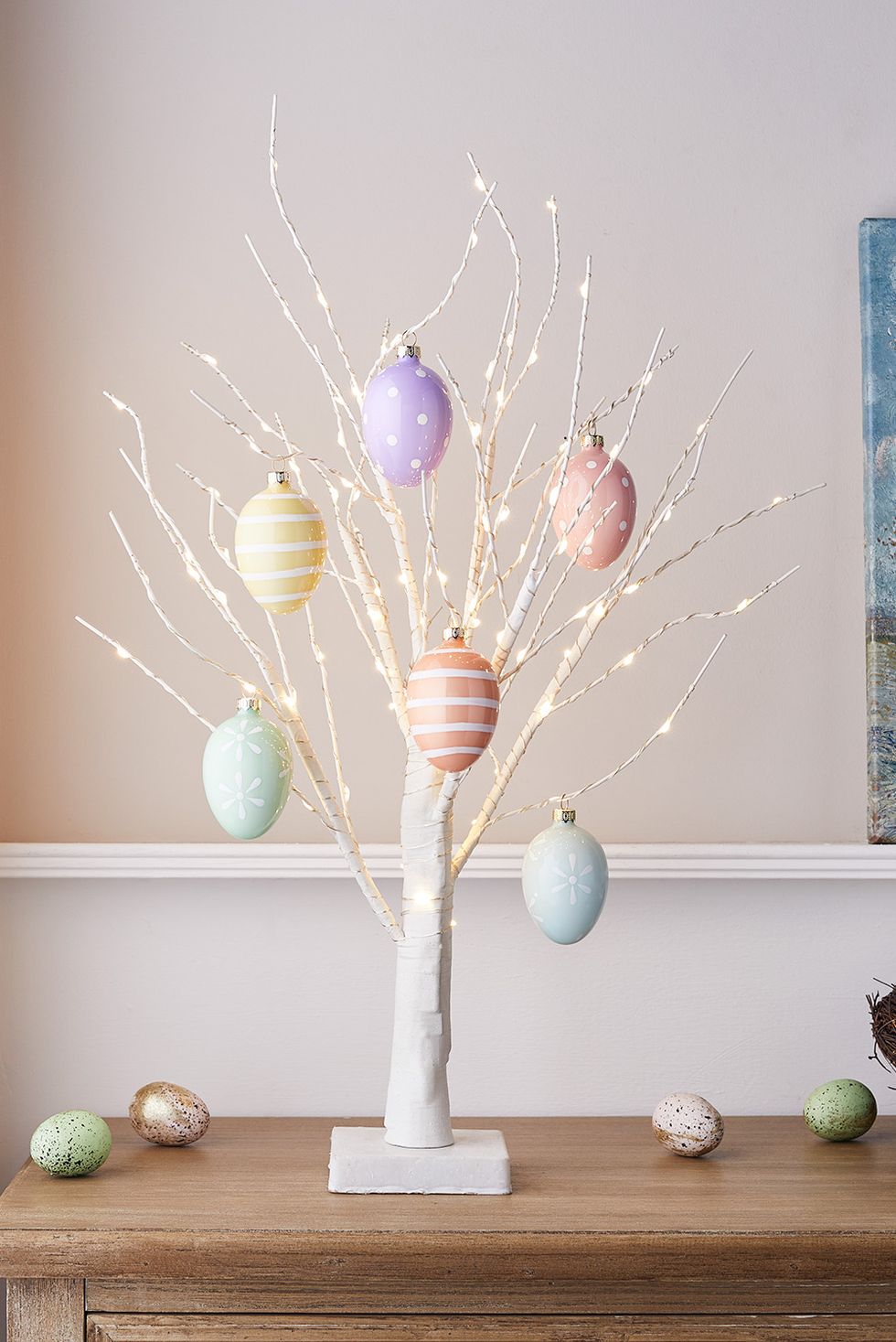 Oliver Perrott/Lights4Fun
Oliver Perrott/Lights4Fun3Easter egg tree (Ostereierbaum)
The
German Easter tradition of decorating branches and bushes with eggs is
centuries old, although its origins still remain mysterious. The popular
Easter tree, Ostereierbaum,
has shown no sign of slowing down and is now adored in many European
countries. Its popularity has seen many retailers stock white twig
trees, which can be decorated with egg ornaments.
Pictured: Twig tree and egg decorations from Lights4fun
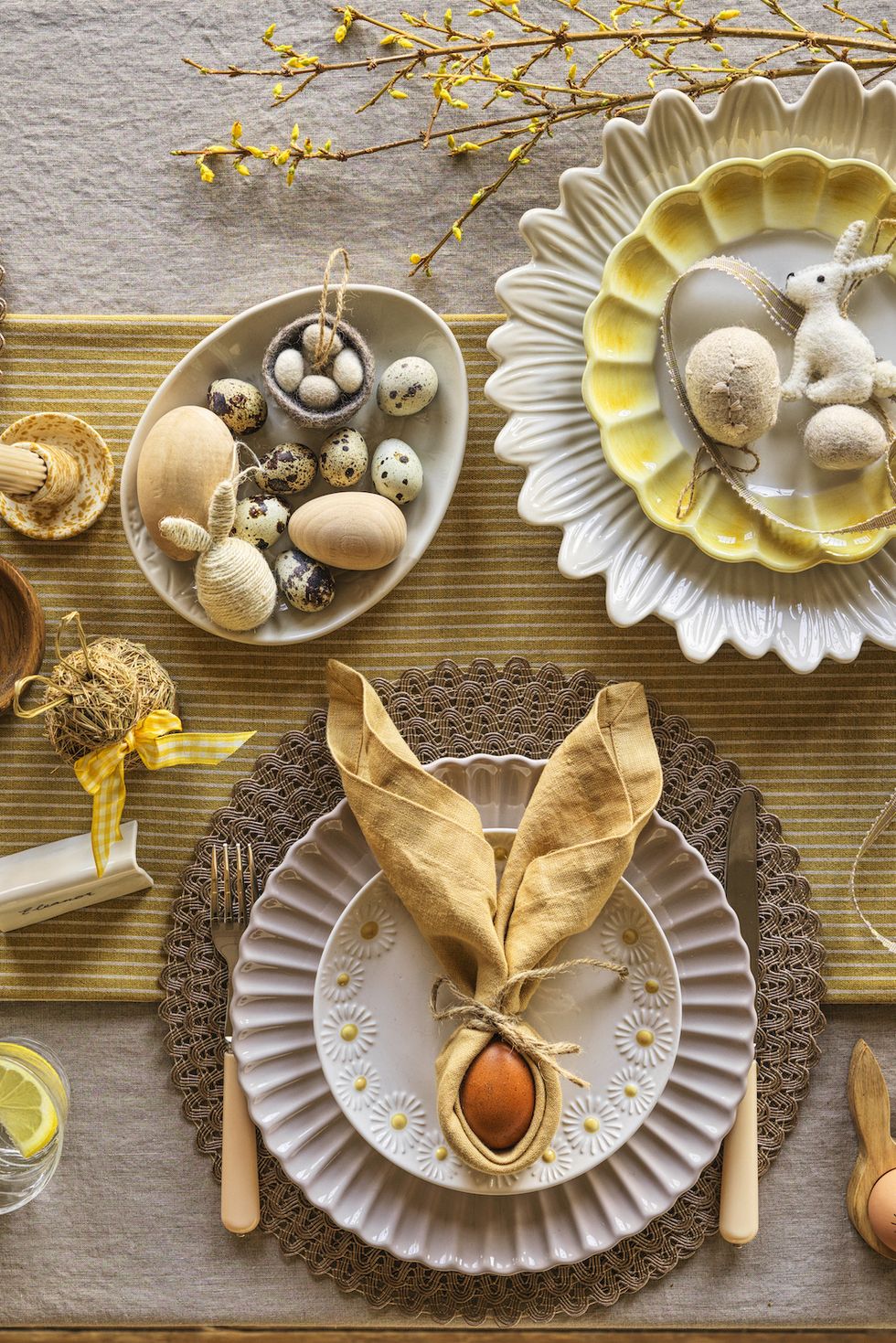 House Beautiful/Mel Yates
House Beautiful/Mel Yates4Easter brunch
Easter
brunch is a big deal in German households. Beautifully laid with eggs,
fresh flowers and the best crockery, highlights of an Easter brunch
include an Osterkranz (Easter wreath), Aufschnitt (cooked meats), Brötchen (fresh rolls, usually from the local bakery), and of course, chocolate.
Advertisement - Continue Reading Below
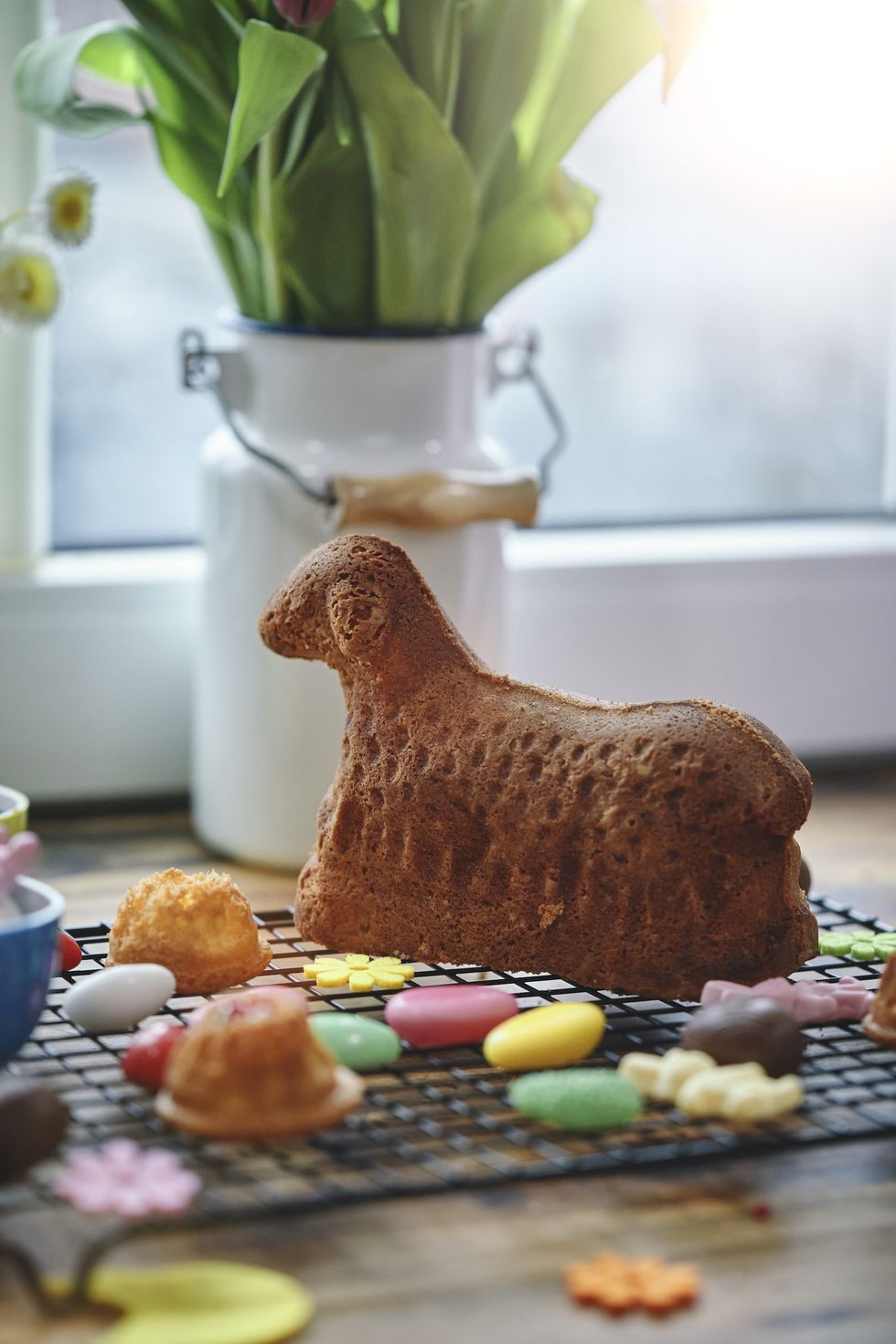 GMVozd//Getty Images
GMVozd//Getty Images5Easter lamb cake (Osterlamm)
A
simple lamb-shaped cake exists in countries such as Germany, Poland,
the Czech Republic, France and Italy. The white cake recipe is baked in a
lamb (or bunny) mould for Easter and then decorated with white icing.
Originating from Germany, it is thought to represent Jesus Christ as the
sacrificial lamb of God.
BUY LAMB MOULD VIA AMAZON
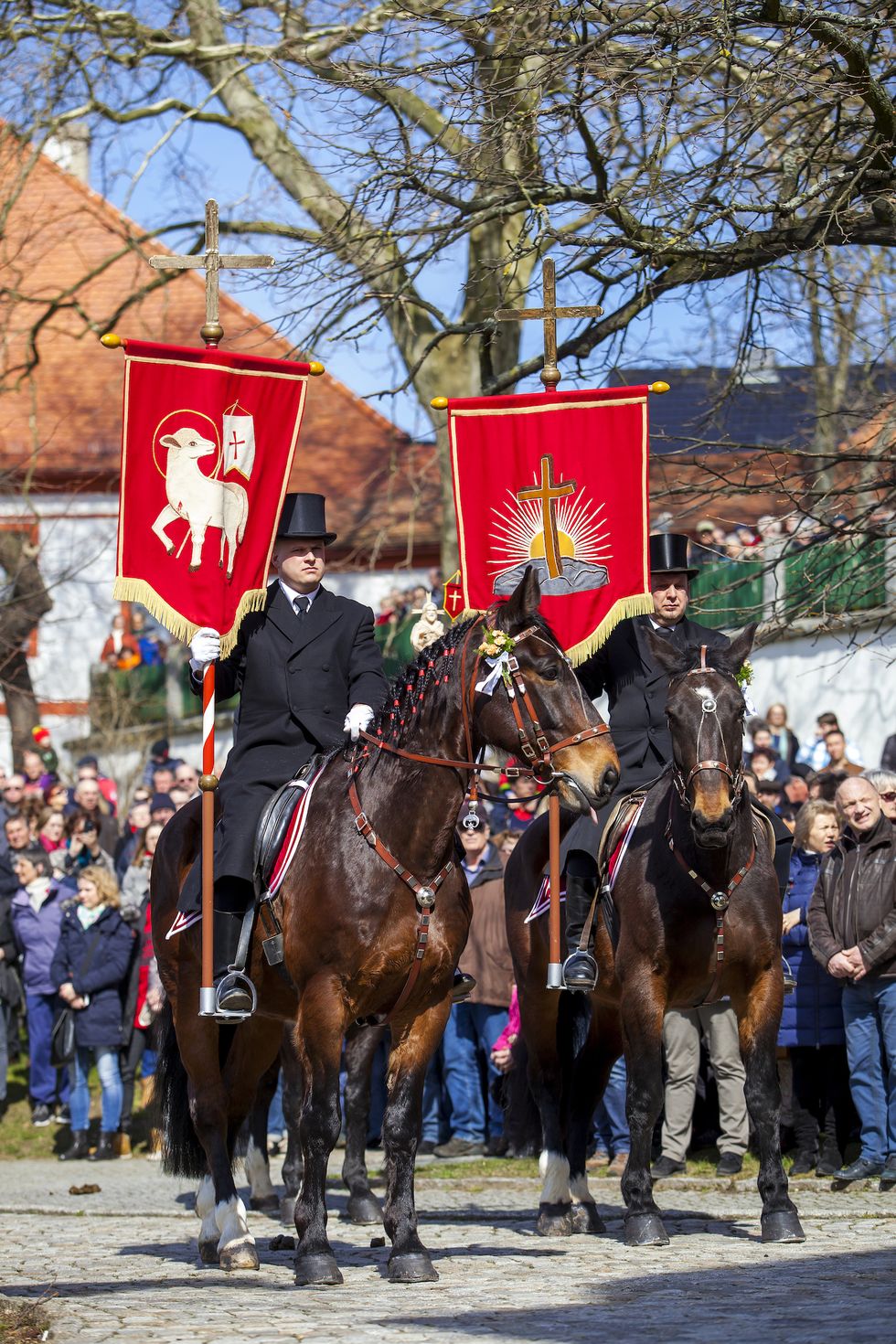 Andreas Franke
Andreas Franke6Easter riding (Osterreiten)
On Easter Sunday, the traditional Osterreiten
(Easter riding) sees men riding horses in procession across the
countryside to the southwest of Berlin. This is held on Easter Sunday to
celebrate the resurrection of Jesus Christ. Men wear top hats, long
coats and black ties.
Advertisement - Continue Reading Below
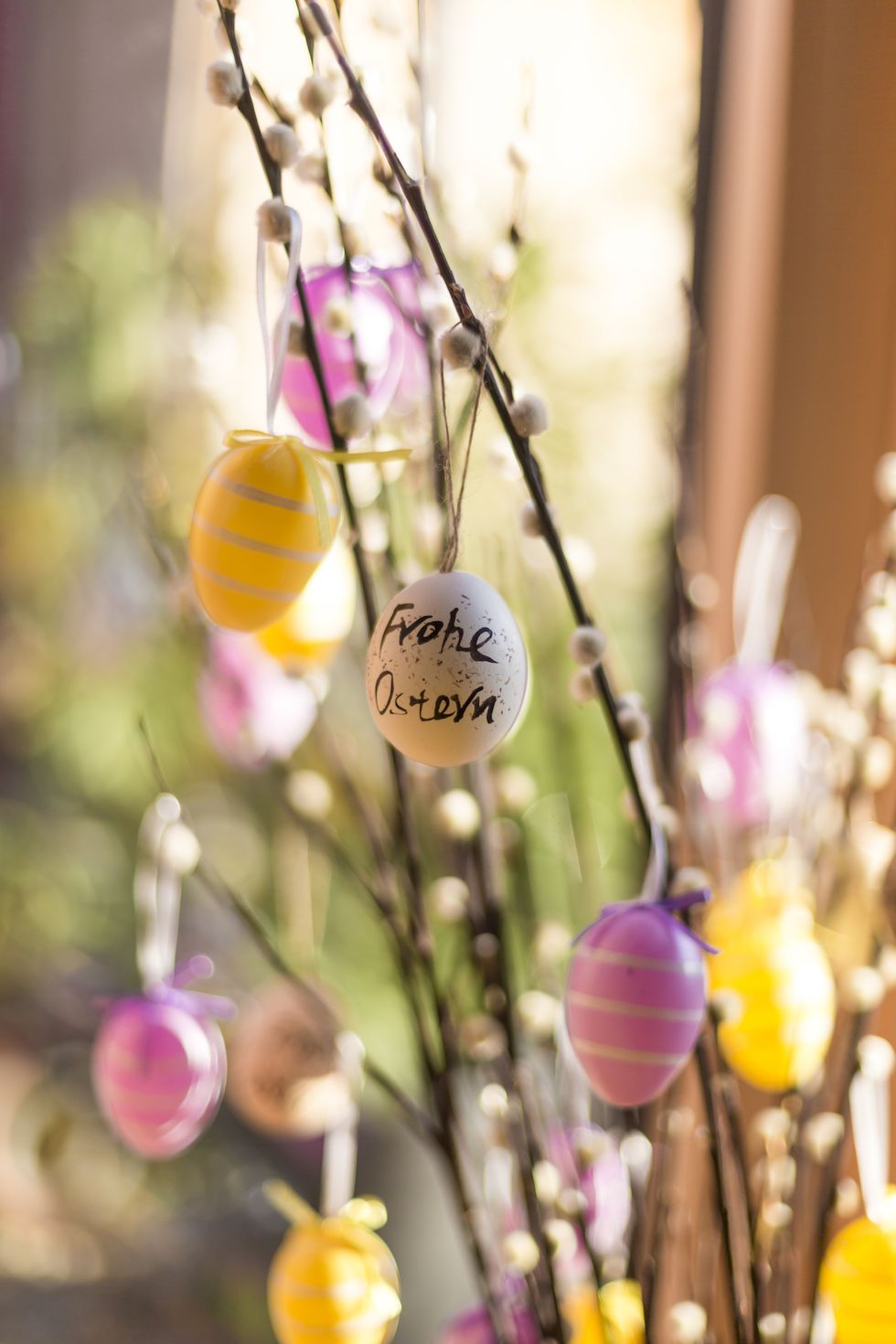 Westend61//Getty Images
Westend61//Getty Images7Easter bouquet
The
German tradition of Easter bouquets is all about bringing the outdoors
in. Many households cut branches from blossom trees (or forsythias) on
Maundy Thursday and put them in a vase until Easter Sunday. To complete the look, families paint and decorate the eggshells several days before Easter.
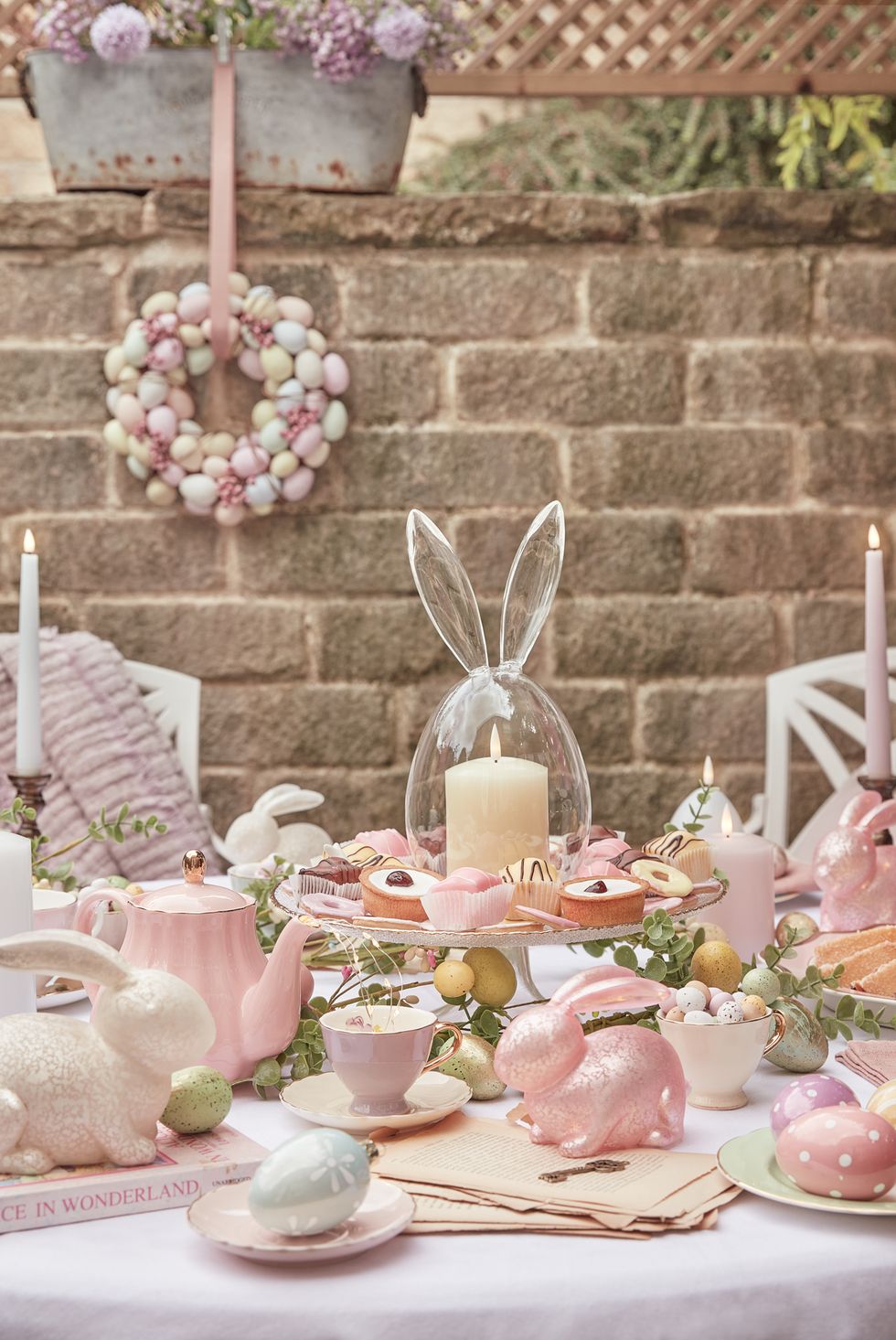 Oliver Perrott/Lights4Fun
Oliver Perrott/Lights4Fun8Green Thursday (Gründonnerstag)
In Germany, Maundy Thursday is known as Gründonnerstag
(Green Thursday). Marking the end of Lent, Germans celebrate the day by
eating something green — such as spinach, which is a firm favourite.
Many households will add a big green salad to their evening meal to
celebrate.
Advertisement - Continue Reading Below
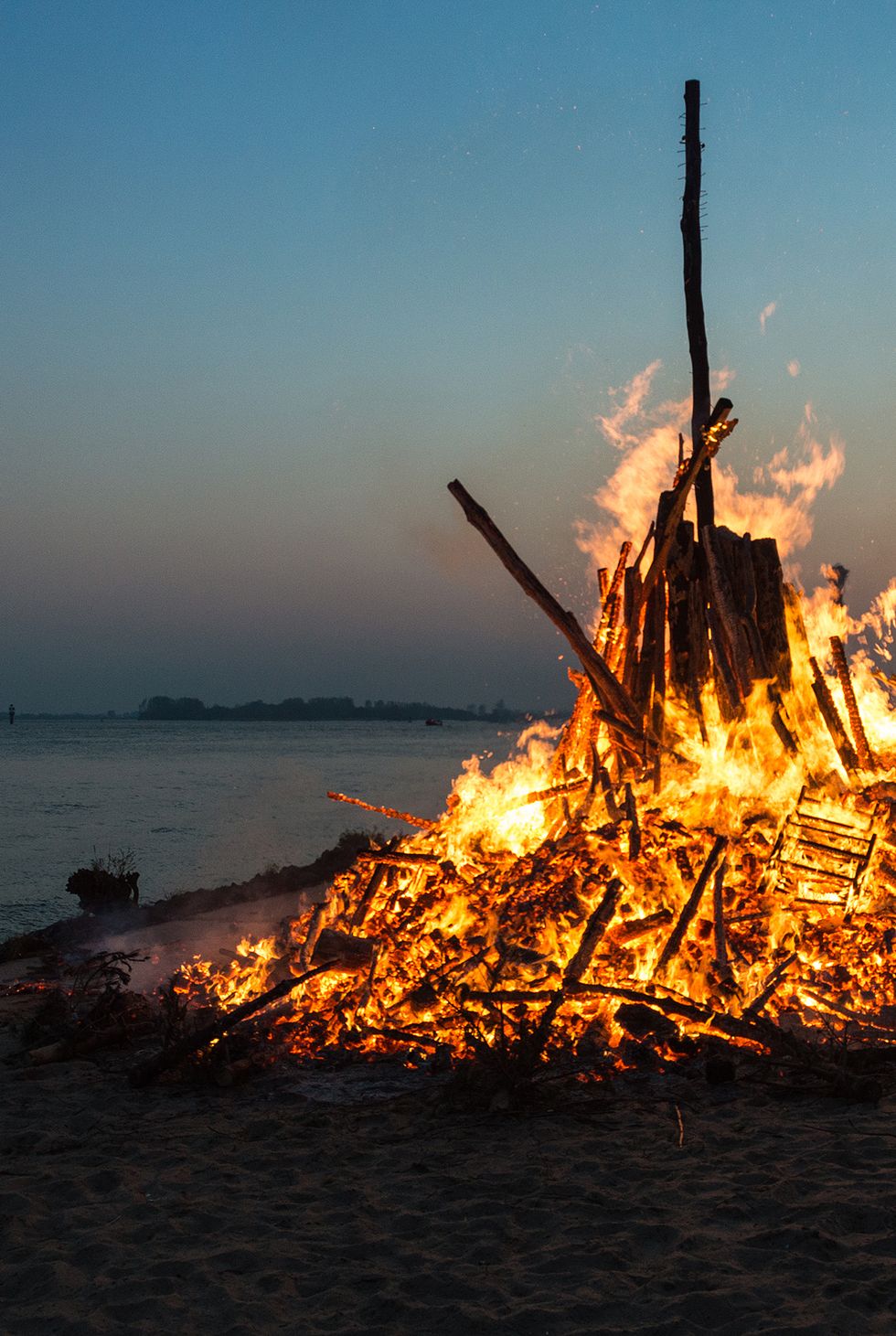 Symbiont//Getty Images
Symbiont//Getty Images9Easter bonfire (Osterfeuer)
Easter bonfires (Osterfeuer)
in Germany have been around for decades. Traditionally, the people of
Hanover, Westphalia and Lower Saxony marked the end of winter with
Easter fires on the evening before Easter Sunday. They tend to occur in
beachfront areas, and represent light overcoming the darkness.
 Olena Ruban//Getty Images
Olena Ruban//Getty Images10Easter greetings (Ostergrüße)
In
Germany, Easter is the second most important Christian holiday after
Christmas, and it is common for people to wish each other happy Easter,
or 'Frohe Ostern', on or before the long Easter weekend. Pupils can also look forward to two full week off during the Easter break (Osterferien).
Easter greetings can also go beyond just words. Some people like to gift little baskets to their family, friends, colleagues and neighbours.
Follow House Beautiful on TikTok, Instagram and Pinterest.

Lisa JoynerDeputy Daily Editor, Country Living and House Beautiful
Lisa Joyner is the Deputy Daily Editor at House Beautiful UK and Country Living UK, where she's busy writing about home and interiors, gardening, dog breeds,
pets, health and wellbeing, countryside news, small space inspiration,
and the hottest properties on the market. Previously, she has written
for Conde Nast Traveller, House & Garden and Marie Claire magazine. Lisa studied at University For The Creative Arts, where she completed a BA in Fashion Journalism.











